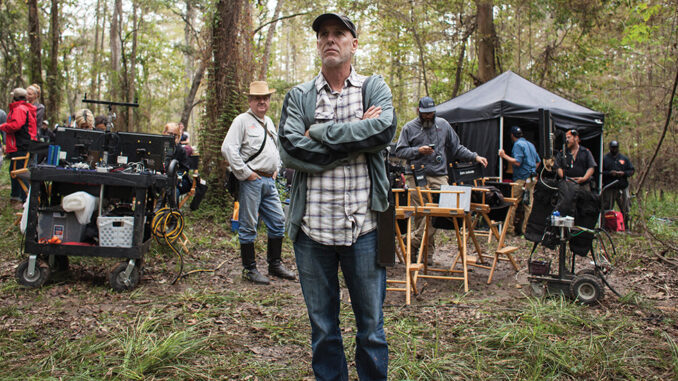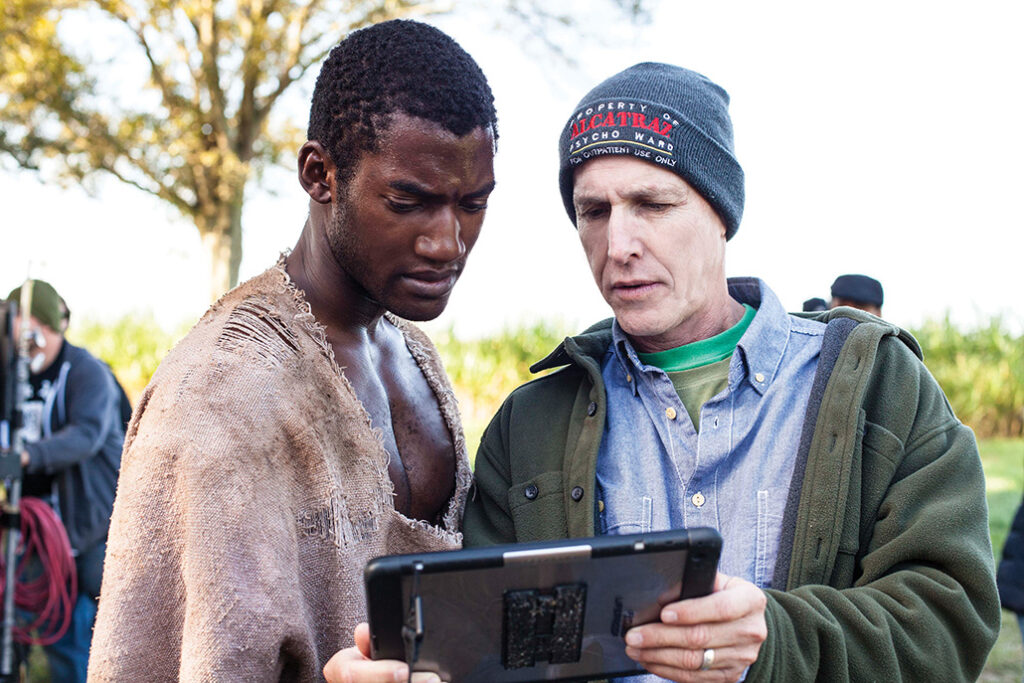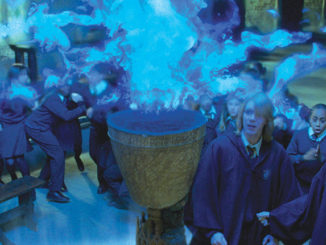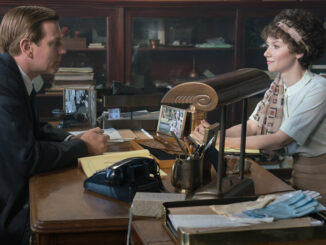
by Laura Almo
The idea to reboot the legendary, award-winning miniseries Roots nearly 40 years later was executive producer Mark Wolper’s, and it did not come easily. The president of the Wolper Organization, a media production company that has produced over 500 projects, he is the son of film pioneer and television producer David L. Wolper, whose varied credits range from Willy Wonka and the Chocolate Factory (1971), the original Roots (1977) and The Thorn Birds miniseries (1983) to the Los Angeles 1984: Games of the XXIII Olympiad series, Imagine: John Lennon (1988) and L.A. Confidential (1997). CineMontage caught up with Wolper to discuss the motivation to finally retell Roots, how this version was crafted to appeal to a new generation, and his thoughts on walking in his father’s footsteps.

[su_divider top=”no”]
CineMontage: What was the impetus to make a new version of Roots?
Mark Wolper: It was a family legacy that I controlled the rights to. I was very resistant to approach it again, partially because it’s too much of a burden to try to recreate the most successful [entertainment] television show of all time. Plus knowing that my father did the original one was just a bit too overwhelming for me. And it had done so well the first time that I figured, why do it again? Until I sat down with my then 16-year-old son and two other kids to watch the original Roots...
They couldn’t watch it. I had to literally hold them down and force them to watch all of Roots. When it was over my son said, “You know what, Dad? It’s kind of like your music; I understand why you like it, but it doesn’t speak to me.” And it was that moment I realized that’s the reason I’ve got to do Roots again; it’s part of our history and the old Roots needs to be translated to the language of the new America.
CM: How did you go about making this version appeal to younger generations?
MW: One of the most important things in mounting Roots again was how to make it contemporary. It is part of our heritage. It talks about how this country was built, and you’ve got to tell the story over and over again. Looking back, the old Roots really doesn’t hold up production-wise — specifically, the styles of editing and directing don’t hold up today. You could never get a 17- or 25- or 30-year-old to sit down and watch the editorial style that was popular in the 1970s. [Updating] the editorial style is one of the most significant ways to actually bring it into this generation.
“I think the producer’s function is to protect the director
and the editor from too many notes.” – Mark Wolper
CM: How would you describe the editorial style of the ’70s?
MW: It’s a combination of the directorial and editorial styles. In the 1970s, somebody would deliver a line, and you’d watch him deliver the entire line and stay with him for a significant look after he delivered that entire line. Then you’d cut to the person to whom he was speaking, and you would hang on him for the reaction to what was just said. Then that person would start speaking and you’d stay on him until he finished the whole line. You’d just cut back and forth that way, and let every moment play out to its maximum — even if it wasn’t a moment requiring that.
CM: How has the editorial style changed?
MW: Now we have a much faster pace. In the ’70s, the general audience didn’t know about filmmaking. Now everybody knows how films are made. Everybody has an iPhone, an iPad or a little digital camera. Everybody is involved in the filmmaking process. The audience is much quicker and so, as filmmakers, we have to stay ahead of the audience. As a result, we don’t have to finish a scene anymore, yet the audience still knows where we’re going. We don’t have to stay on subjects for the whole dialogue. We could be outside and they could be saying the dialogue inside, and we don’t even have to see their faces.
CM: How does the 2016 version of Roots differ from the original?
MW: First, the obvious production stuff is the change in style — move it along faster, stay ahead of the audience, direct it quickly, have a lot of action, and keep the cameras moving — which is very popular now and wasn’t done so much in the ’70s. Also, using the music and actors that a new generation knows.
The other thing that’s very interesting is that the original Roots [the book and the miniseries] was so successful that it actually prompted enormous amounts of study in the field of the business of slavery: What was going on in Africa? What was going on in the village of Juffure? After the success of Roots, they excavated in the town of Juffure. When Alex Haley was writing the book, the historical work hadn’t been done. So there were a lot of historical facts that he didn’t know or that he got wrong — not because he made a mistake, but because the material just wasn’t available. We have integrated all that new historical information into this film.
CM: Like what?
MW: For example, the original Roots showed a little village of about 150 people living in grass shacks, a very small community that probably wasn’t exposed to Westerners or Europeans, so they were surprised when they saw the white community for the first time.
As a result of all the archeological work that was done, we now know there was a city of over 10,000 people with a university. It had a church and a mosque, and they were studying Islam. It is highly likely that Kunta Kinte spoke four languages — Mandinka, his native tongue; Portuguese; English; and Arabic — because he was studying the Quran. As royalty, Kunta Kinte would have been a Muslim, so he was learning Arabic. These are things we show in the new Roots that were not in the original one.
CM: How do you work with the editors in the editing room?
MW: I was very involved in the editing of all four episodes. Typically, how it worked was that the editors finished their cuts and then the directors came in and worked with the editors. Then each editor and director would show it to me. When they had options and couldn’t really decide which version they liked better, they would show me those versions and we’d all decide together.
To a great degree, I think the producer’s function is to protect the director and the editor from too many voices speaking and giving notes. There’s a tendency, particularly in television, for that to happen and I think it’s better to let the director and editor speak most loudly. And one more thing; our editors did a really kick-ass job on this show.
CM: Your father, David L. Wolper, was a film pioneer and producer of the original Roots. What does his legacy bring to this new version?
MW: In an odd way, I think that his spirit is on top of the whole project because of my connection to it. Anything that I learned from him growing up, anything that he spoke of, anything that was important to him clearly was at the front of my mind as I did this show. What would he think? What would he have said? The first question being: What would he have thought about the fact that I was doing it again?
CM: What do you think that answer is?
MW: I have no idea, and it’s a frightening notion. I more easily know the answer to questions like: What kind of music would he like? How would he do a certain sequence? How would he negotiate with the network or the studio? My dad was a great politician. The answers to those questions were the easy things to follow.
The harder one is: What would he think overall of the decision to make Roots again? And if he had seen and heard the same thing from his grandson that I heard from my son, I think he’d understand.






